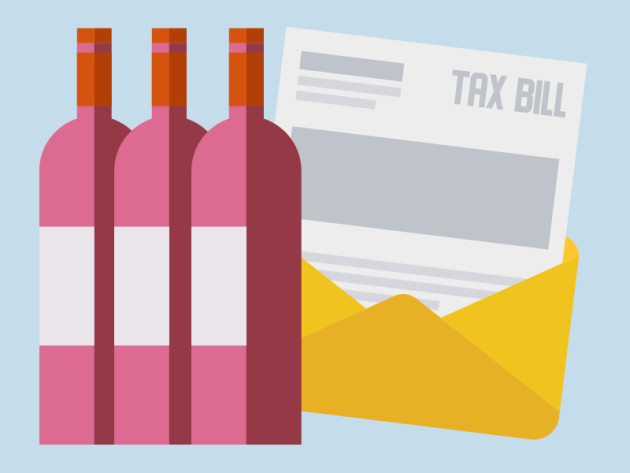
The taxing debate around duty
With the wine trade potentially facing a damaging new duty regime, Andrew Catchpole convened a panel at Wine Paris to ask: “Will the proposed new excise duties in the UK make wine unaffordable?”
It’s been well documented in the UK that the UK government is proposing to implement post-Brexit changes to the alcohol duty system, to be introduced in early 2023. The suggested new regime has been heavily criticised by the wine trade as unworkable and overly complicated, for adding a big additional overall tax burden to the sector (£200m, against stated government aims) and for singling wine out for more taxation than other alcoholic beverages.
Of most concern to the exporting producers attending the discussion at Wine Paris is that this would potentially add to their paperwork and costs of dealing with the UK.
On the upside, sparkling wine is to no longer be penalised with a higher duty rate, with the old three-tier sparkling, still and fortified bands being reduced to two broad bands for sparkling/ still and fortified. However, the proposals are to up the level of duty for every 0.5% increase in abv, adding 27 tiers in total.
As the WSTA’s Miles Beale highlighted, UK Chancellor Rishi Sunak had promised the Alcohol Excise Duty Review would be “simpler and fairer”, removing distortion to make alcohol taxation more economically rational and reducing the administrative burden on complying producers.
It was also stated that the new regime would not seek to increase overall tax revenues for the UK Treasury. “It’s definitely a mess”, said Beale, referring to a chart illustrating the rising scale.
“If you consider wine starting at 8% abv and going to 22%, which is where wine made from fresh grapes falls according to international definition, you can see that between 8% and 15% for wine, and above 15% to 22% for fortified, it’s 27 different rates.”
Beale pointed out that these proposals have been made in the absence of any clear understanding of the volumes of wine that sell at differing abvs, adding that the Wine & Spirit Trade Association’s (WSTA)
own modelling suggests any reduction in duty burden from sparkling wine would be offset by an overall rise of £200m in excise duty across all wine, with higher abv wines obviously suffering the most.
Hal Wilson had also crunched the numbers, saying that, based on typical wine sales, Cambridge Wines would be hit by a 10% tax rise. “The government doesn’t know what the figure is because the government doesn’t know what abvs are coming into the country,” he agreed.
Justin Howard-Sneyd MW, who produces wine in Roussillon, highlighted how producers in “countries that grow grapes that become very ripe, including the New World, would be penalised” by the new system, adding it “seems to have been put forward with very little thought as to its implementation”, also leaving room for tinkering (or outright fraud) with stated abvs.
“How do we go about recording the base alcohol level? Is what is printed on the label enough, will analysis have to be added to the import paperwork, who is the referee? And how are we going to set up as a requirement data verification in order to test every alcohol level that is on the label?” he asked.
UK bond operators are also sitting on large stocks of wines already in the UK that would require abv checks before release.
Beale highlighted how the gains made from post-Brexit free trade agreements, such as the one signed with Australia shaving off 7-8p a bottle, would be swallowed up by a rise of up to 50p on the average Oz bottle, down to additional duty.
“If this goes through,” said Beale, “93% of wine sold will become more expensive.”
The panel, however, was keen to impress upon exporters and potential exporters to the UK that the proposals would most likely be moderated, with Beale saying it would be the realisation of the administrative burden, rather than additional financial weight, that would most likely be the winning argument.
Wilson highlighted the trend to premium wine drinking, which he said was “where to focus” with regard to the UK, with higher priced wines better able to absorb duty rises within a sensible margin. Howard-Sneyd, though, raised a concern that the new regime would push people towards cheaper wines.
The WSTA’s own proposal is to introduce just two bands, with 8.5% to 15% “taxed at the midpoint of 12% abv” and “fortified wines or anything above 16% taxed at 18%”.
A final word went to Beale: “If you are based in the UK, you have an office in the UK, or you do business with people based in the UK, then please do ask them one question, ‘have they written to their MP?’.”
Keywords:
- wine
- UK
- Miles Beale
- Brexit
- tax
- duty
- debate
- Hal Wilson
- Wine Paris
- Rishi Sunak
- Justin Howerd-Sneyd MW
- Alcohol Excise Duty Review







